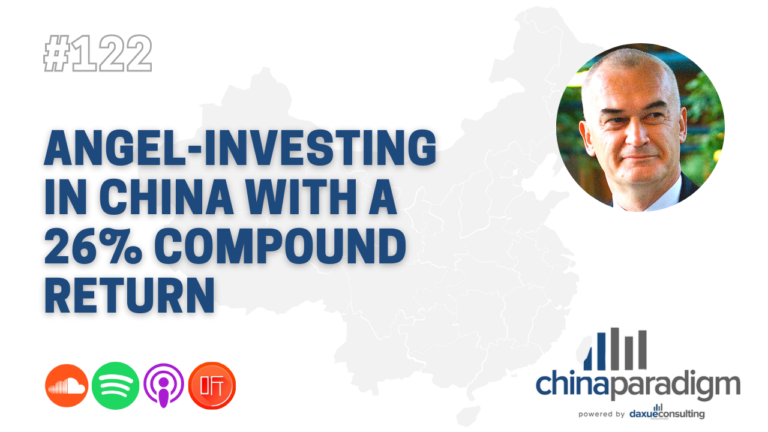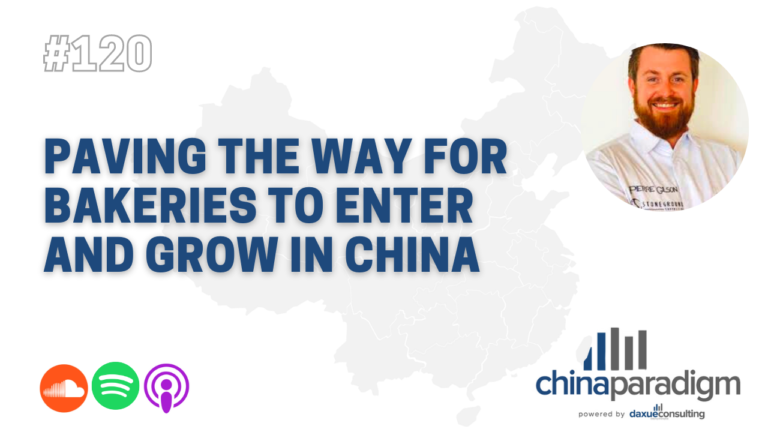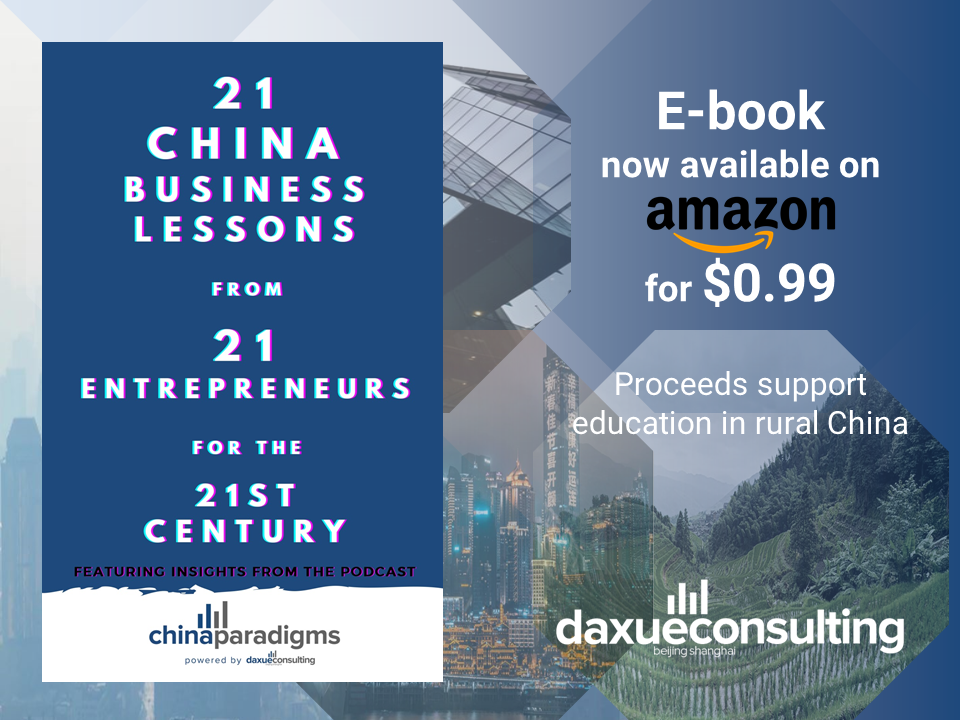China Paradigm interviewed Florent Bonnefoy, founder of Bonnefoy + Partners to discuss the changing tastes and food industry in China and to share the key factors that lead to success or failure when it comes to opening a restaurant in China.
Florent Bonnefoy launched the Michelin Guide in China
Florent Bonnefoy studied at EHESS and Sciences Po Paris in France where he had his first real connection with China: in 2002, through an exchange program, he studied one year at Tsinghua University and one year at Renmin University, in Beijing.
With more than 10 years of experience in the food-related business in greater China and 12 years living in the country, he has then become a thorough expert in the food industry in China.
Indeed, Florent Bonnefoy worked for the prestigious Michelin Guide in China for 10 years. He launched the first edition of the Shanghai Guide and established a strategy and a roadmap for Michelin’s business growth in China mainland, Hong Kong, Macau, and Taiwan.
In 2017, Florent decided to create his own company, advising entrepreneurs and companies on how to start a food business in China.

Today, he is also the publisher and co-Editor of the FOOD+ Journal, which deals with stories about food, restaurants, chefs, and all that stirs the palate, the mind, and the imagination.
Bonnefoy + Partners, in-depth advice on the food industry in China
Bonnefoy + Partners is a consulting firm working with clients across China mainland, Hong Kong, Japan, Singapore, and South Korea on new venture concept development, brand growth and experience design.

Based in Shanghai, they work on two main elements: the first one is concept, from the consumer experience, quality of ingredients, quality of cooking, etc. They can also develop new concepts for clients helping them to find the right ideas for their properties.
Secondly, they work on marketing, communication strategy and social media because, according to Florent Bonnefoy, you can’t run a restaurant in China without promoting it in a smart way:
“Marketing is still vital: you need to sustain awareness in the midst of a lot of noise. It may be harder in China because people are constantly solicited.”
How to successfully run a food business in China?
Daxue Consulting summarized all the excellent advice given by Florent Bonnefoy:
1) Make sure you have a strong concept and good food. Of course, the first element is the quality of the dishes served and therefore of the ingredients. But Florent points out that you have to bring a well thought-out and strong concept.
2) ‘‘In China, fun is also crucial’’: Florent explains that to have a unique concept that will appeal to the Chinese, you have to offer fun. And fun is being playful. For him, this takes into account the atmosphere of the restaurant, the design, the general environment, and specific features such as giant screens to measure the cooking of food for example.
3) Choose your location carefully:
“If you have a good concept, but not in the right location, then probably, business won’t be good. If the location is nice, but a weak concept, it’s the same.”
4) Spend money on public relations.
So public relations is crucial to always be on top of the news and to activate word of mouth: ‘’Working with magazines, working with journalists and food critics is also quite important. On top of this, there is also KOLs, which is also important.’’
5) Be part of the network of restaurants in China
Meeting people and see how they work in China, how they choose ingredients, how they promote and design their restaurant is the best thing to do, especially if you are a foreigner in China.
Getting a star from the Michelin Guide in China is an achievement: 5 criteria you need to take into account
Of course, getting a Michelin star is an excellent commercial for your restaurant in China. To do this, here are the five criteria you need to work on:
It is mainly about the chef and how he masters the technique. Of course, the quality of products is the first criterion, but without the right technique and without creativity (criteria 2 and 3), these are just ingredients. So the question you should ask is how is the chef inputting his personality into the food? Florent took the example of the Chinese Dim Sum:
‘’If you have very good shrimps, then the technique is very good, so your shrimp dumpling is good. It’s not too moist. The texture is nice. But then how a chef would make a difference by adding a little something to that dumpling, that will make it different from other delicious shrimp dumplings.’’
The fourth criterion is the value for money. And the last criterion is consistency over the menu. It means that if your restaurant in China is famous for one specific item, then the rest should be perfect too.
Have the tastes and preferences of Chinese consumers changed in 2019?
‘‘Organic trend in China is taking off quickly. The Chinese government is also putting a lot of efforts in that.’’
Florent Bonnefoy highlighted a key point: Today most Chinese people are inspired by foods from all over the world. And they are also aware of the poor quality of some of the ingredients they can buy in China. But it doesn’t mean that for the ingredient to be good, it must be imported. It just means that Chinese consumers are now turning to Chinese organic stores and tend to buy healthier food.
“Agriculture in China and the food industry have a lot of crises. But I also think because, by people’s demand, people want healthier food.”
China Paradigms is committed to sharing knowledge for economic growth in China










